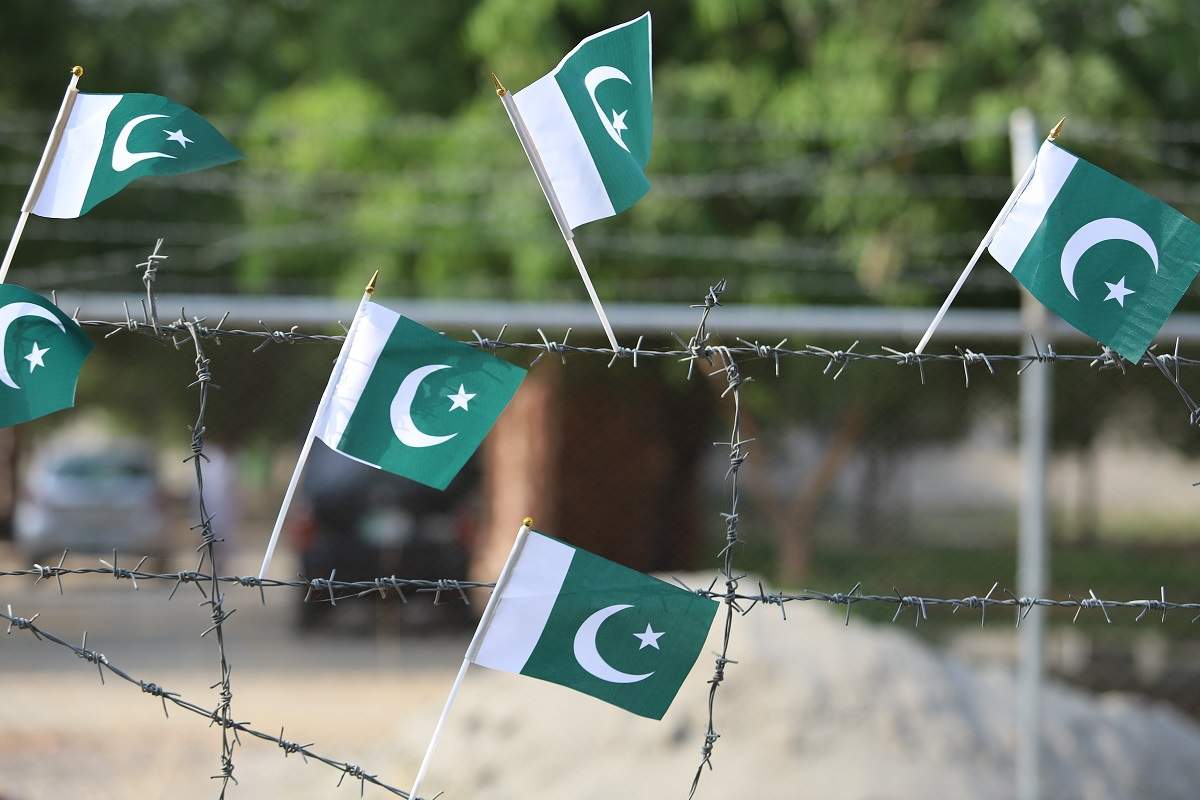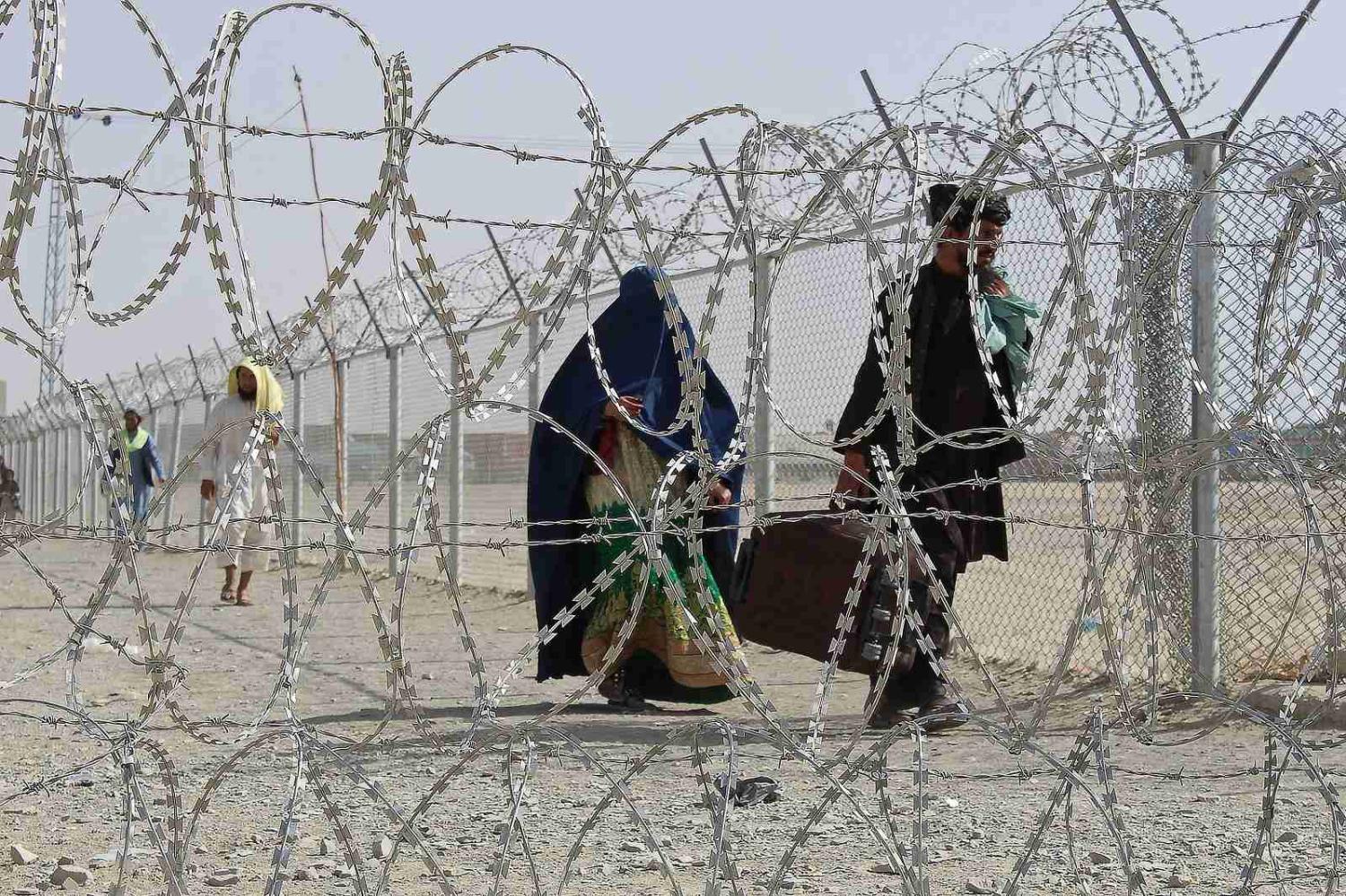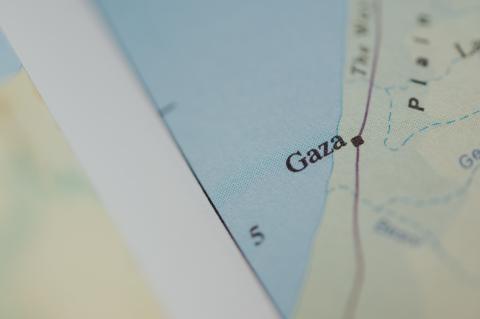In 2021, it’s positively tinfoil hat territory to utter the phrase “deep state”. But they’re the words that come to mind when reading about developments in Afghanistan, where the Taliban is getting comfortable back in the halls of power, Pakistan expresses jubilation at home, and Pakistani officials keep popping up over the border – in particular, Faiz Hameed, the chief of the all-powerful Inter-Services Intelligence (ISI) agency. Hameed was in Kabul, presumed to be meeting with Taliban leaders, in the days before the new cabinet was announced, which is made up almost entirely of old-guard Talibanis.
Other than the Taliban, no one is celebrating their victory more than Islamabad, which has provided safe haven to Taliban militants since the US invasion of Afghanistan in 2001. Twenty-eight of the 33 new cabinet members have spent the past two decades in Pakistan, which was concurrently hedging its bets by taking on a leading non-NATO ally role to the United States.
The full ramifications of the Taliban victory are yet to be realised.
Former Afghan Vice President Amrullah Saleh wrote in the Daily Mail earlier this month that the Taliban is being micromanaged by the ISI. Saleh, who has restyled himself as a resistance leader based in the Panjshir Valley, claims that the Taliban’s spokesperson receives hourly instructions from the Pakistani embassy. “[T]he Pakistanis […] are in charge effectively as a colonial power,” he wrote.
The full ramifications of the Taliban victory are yet to be realised, but it is widely predicted that it will trigger political change that will lead to a realignment of relationships in the entire region, from Iran to China, Russia to India.
In early September, Hameed met with the intelligence heads of a number of countries, including China, Russia, Iran and Uzbekistan, to discuss the evolving situation in Afghanistan. For the intelligence services, a sovereign nation taking such an in-depth interest in the affairs of another sovereign nation indicates that it might be seeking an active hand in the new government.

The United States has already signalled its intention to reassess its ties with Pakistan, with US Secretary of State, Antony Blinken, telling a Congress hearing that Pakistan has a “multiplicity of interests, some that are in conflict with ours”. Lawmakers from both sides of politics want the Biden administration to take a firmer line against Islamabad, including ending its status as a major ally that has received billions of dollars in US funding. Some want the United States to formally downgrade the relationship, while others are calling for official sanctions.
For its part, India has reacted with muted concern, concealing what is undoubtedly a lot of deep anxiety in New Delhi over the regional security challenges that potentially lie ahead. India has long considered the Taliban to be nothing more than Pakistan’s “proxy terrorist”, and are concerned at what it means to have its rival wield any form of control or influence in Afghanistan. Prime Minister Narendra Modi took his time in addressing it, on 17 September telling a meeting of the Shanghai Cooperation Organisation that “it is a must for all of us to ensure there is no radicalisation and extremism on the rise there [Afghanistan]”.
There are, of course, potholes ahead for Pakistan if it is determined to maintain closer ties with its neighbour.
The threat of radicalisation is not an implausible one. The Taliban had its roots in Pakistan in the 1990s, and after the 2001 US invasion many of its leaders found sanctuary over the notoriously porous border, in particular the infamous Haqqani network, an insurgent group that is based along the boundary between the two countries. India fears that Afghanistan will now become a hub for militants, particularly anti-Delhi forces, and that Islamisation will grow rapidly in the region, and with it, the threats posed by jihadist groups. Already, lines can be drawn between disparate Islamist militant attacks elsewhere in South Asia, such as the 2019 Easter bombings in Colombo, Sri Lanka, which left 267 people dead. India also fears further unrest in the already volatile Kashmir, and particularly from the groups that have traditionally posed the greatest risk there – Jaish-e-Mohammed and Lashkar-e-Taiba.
There are, of course, potholes ahead for Pakistan if it is determined to maintain closer ties with its neighbour. It’s not yet clear which countries will formally recognise the Taliban as Afghanistan’s legitimate government, and Islamabad risks losing ground with any who don’t. With opium still a mainstay of the Afghan economy, Pakistan may be compelled to enter into the trade, which could have ramifications for its reputation.
Pakistan has its own internal power dynamics and struggles, but its two-decade long allyship with the United States has lent it a gloss, a veneer of respectability, in the international community. If it continues down a path of working closely with the Taliban, a group that will likely always be a pariah, it risks compromising its standing, and alienating itself from the liberal international order. But perhaps that’s the point.

